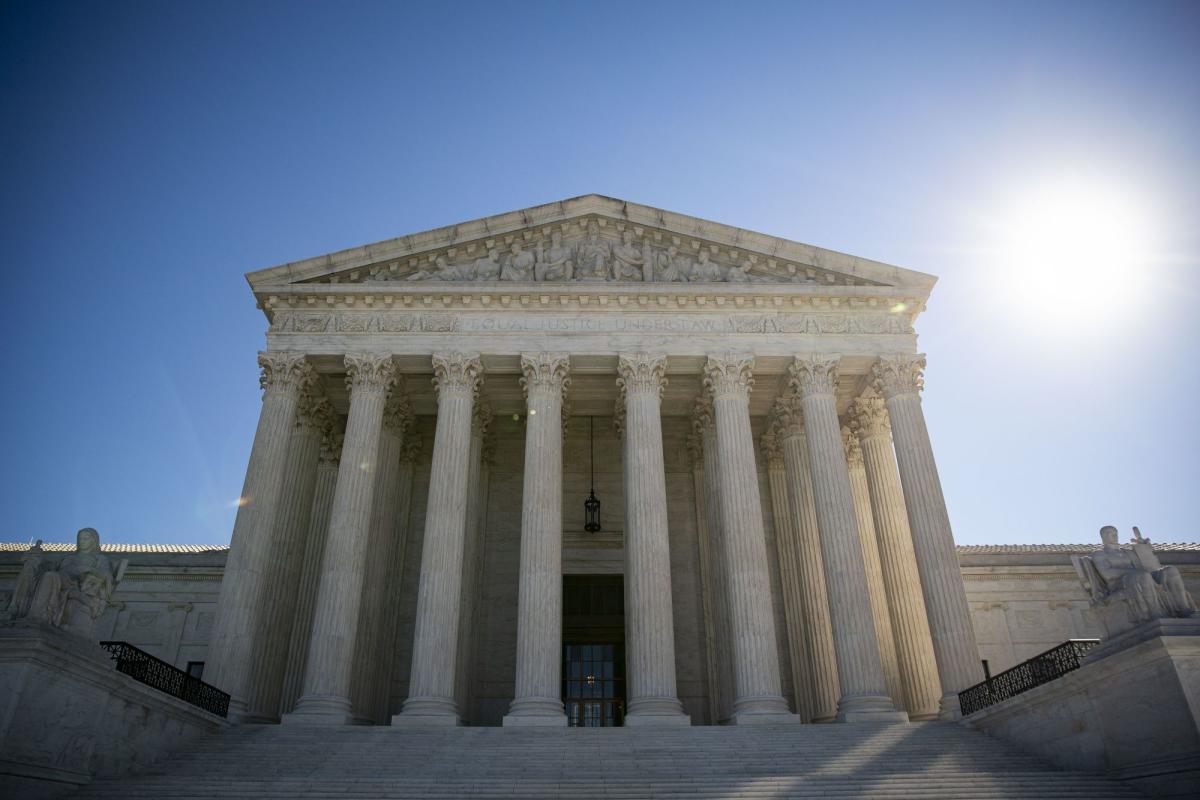
(Bloomberg) — The US Supreme Court sent mixed signals about the fate of a 1978 law that gives preference to Native Americans in adopting and fostering American Indian children.
Most Read from Bloomberg
Hearing arguments in Washington Wednesday, several members of the court’s conservative majority questioned whether parts of the Indian Child Welfare Act could be squared with the equal protection clause and other constitutional provisions.
But over the course of an argument that lasted more than three hours, the court showed little appetite for striking down the entire law, and conservative Justice Neil Gorsuch strongly suggested he would vote to uphold the measure.
“I guess I’m struggling to understand why this falls on the other side of the line when Congress makes the judgment that this is essential to preservation of Indian tribes,” Gorsuch told a lawyer challenging the law.
The law, know as ICWA, stemmed from rising concern that American Indian children were being removed from their families and placed in non-tribal adoptive homes, foster care and institutions. Studies presented to Congress indicated that as many as 35% of all Native children were being separated from their families.
Under the law, states placing an American Indian child are required to give preference to a member of the child’s extended family, followed by a member of the child’s tribe and then other Native American families.
Several justices suggested they were troubled by the favoritism afforded to families from other tribes. “This is just treating Indian tribes as fungible,” Justice Amy Coney Barrett said.
“I don’t know how many cultural similarities you would identify if you compared a tribe in Florida with a tribe in Alaska,” Justice Samuel Alito said later.
Biden Administration
The Biden administration and five tribes are defending the law. The tribes’ lawyer, Ian Gershengorn, said that while a preference afforded to a tribe across the country might be problematic, the case before the justices didn’t present the issue and was “a million miles from that.”
“What is actually happening on the ground is this is used in situations which are quite unremarkable,” Gershengorn said, describing a situation in which a Native American is living on another tribe’s reservation.
Justice Department lawyer Ed Kneedler said the law “was enacted in response to serious harms caused by widespread child-welfare practices that resulted in the separation of large numbers of Indian families, often unwarranted, through adoption or foster placement, usually in non-Indian homes.”
The law is being challenged at the Supreme Court by Texas, three non-Native couples and the biological mother of an American Indian child. The families include Chad and Jennifer Brackeen, Texas parents who adopted one Navajo Nation child and are seeking to adopt his sister. The tribe sought Navajo placements.
The challengers say ICWA is riddled with constitutional problems. They argue that Congress overstepped its authority to regulate commerce involving tribes, illegally commandeered state officials to administer the federal law and gave too much power to tribes to adjust the placement preferences.
“Congress cannot require states to administer a nationwide child custody regime,” Texas Solicitor General Judd Stone argued.
‘Difficult’ for Kavanaugh
The lawyer for the families, Matthew McGill, said “ICWA deprives Indian children have the best-interest-of-the-child test” normally used when states are making placement decisions.
The challengers say the measure violates the equal protection clause by categorizing children based on race. In addition to applying to children who are tribal members, the law covers children who are eligible to become members and have at least one Native American biological parent. The challengers say the law also unconstitutionally discriminates against non-Native families.
Justice Brett Kavanaugh called the issue “difficult,” forcing the court to decide “between two fundamental and critical constitutional values.”
“So on the one hand, great respect for tribal self-government, for the success of Indian tribes with Indian peoples with recognition of the history of oppression and discrimination against tribes and people,” he said. “On the other hand, the fundamental principle we don’t treat people differently on account of their race or ethnicity or ancestry, equal justice under law.”
The court’s three liberals nonetheless suggested they are solid votes to uphold the law.
“Congress understood these children’s placement decisions as integral to the continued thriving of Indian communities,” Justice Elena Kagan told McGill. She added: “And that’s not something that we can second-guess, is it?”
The lead case is Haaland v. Brackeen, 21-376.
(Updates with comments from lawyers, Kagan, Kavanaugh.)
Most Read from Bloomberg Businessweek
©2022 Bloomberg L.P.




